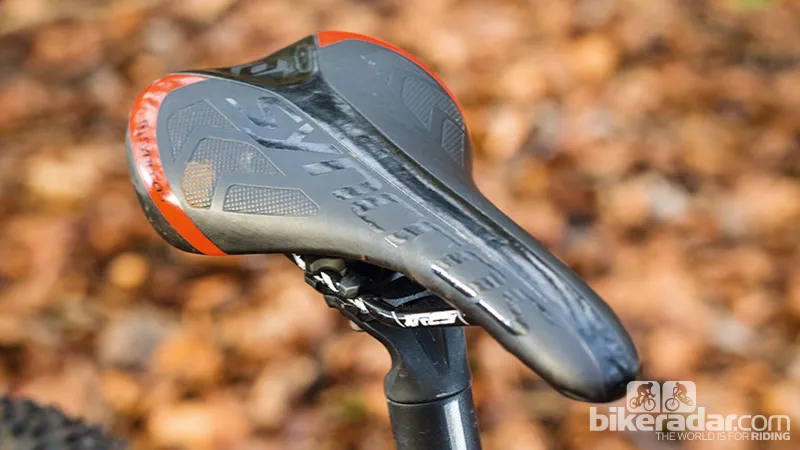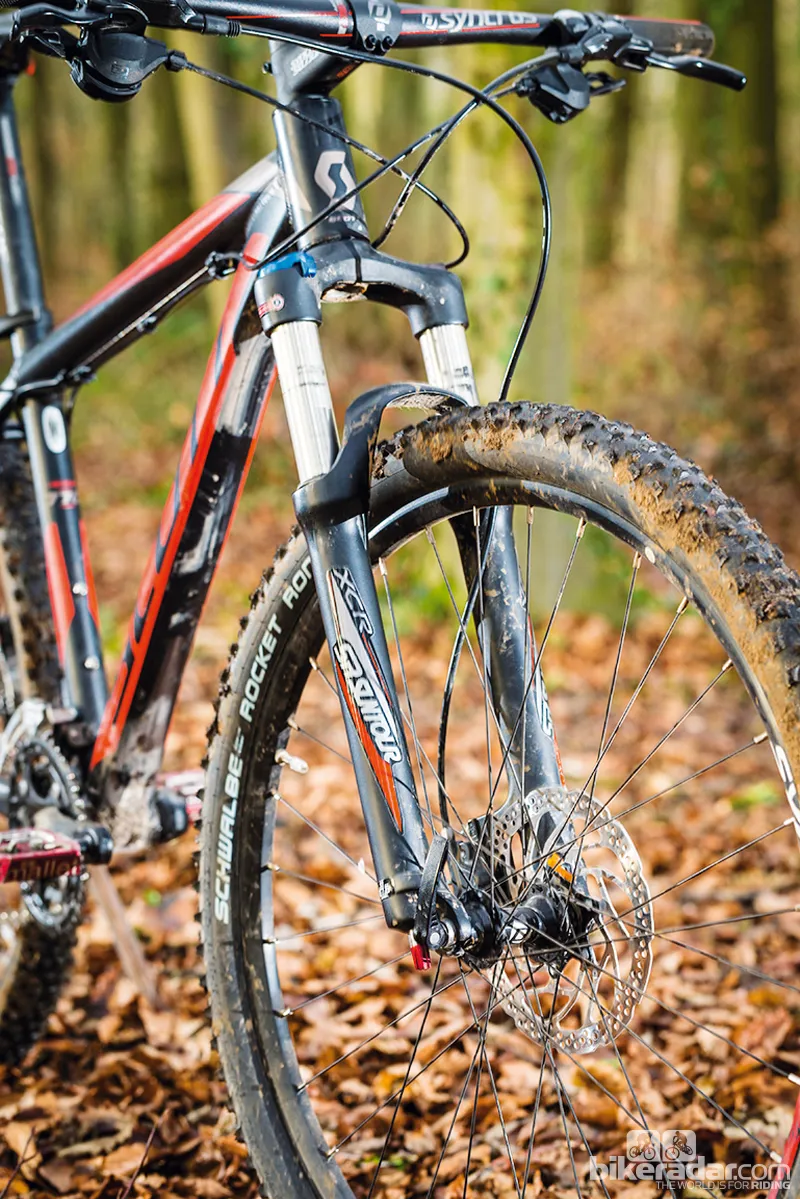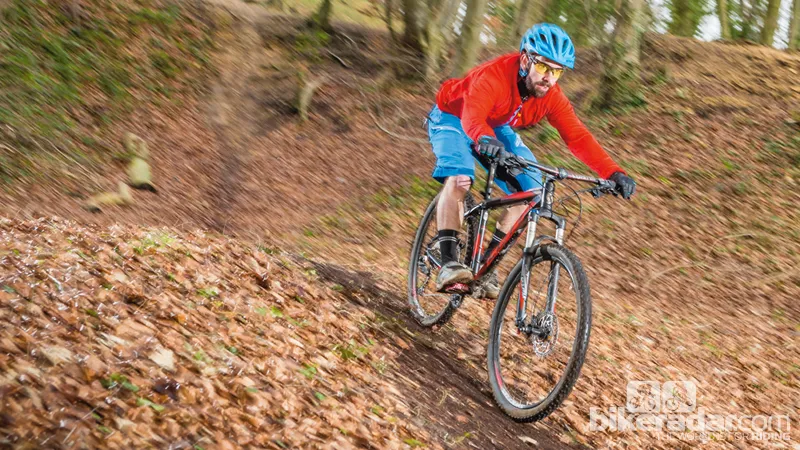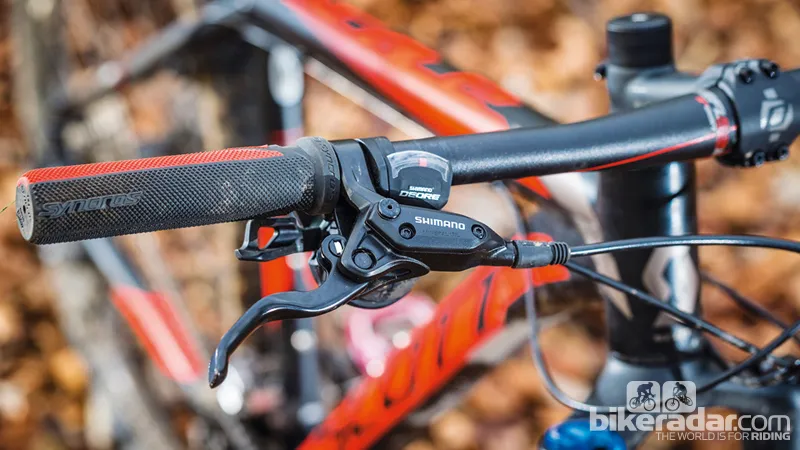The Scott Scale is a no-holds-barred cross-country bike with race-bred DNA coursing through its tubes. But how well does the performance of the high-end carbon models trickle down to the cheaper end of the pricing spectrum?
We hit the trails on the alloy Scale 770 to find out.
Frame and equipment: built with trail-charging in mind
The entry-level, 650b-wheeled Scale 770 uses a custom-butted 6061 aluminium frame. Scott engineers subtle shapes into the tubes to enhance stiffness and add a degree of comfort-boosting compliance.
There’s no routing for a dropper post if you’re looking to get a little more extreme, and the outer gear cable isn’t continuous, so you’ll need to stay on top of maintenance through the winter.
There is provision for a rack or mudguards, but the Scale is really built with trail-charging in mind. You can rage on the 770 and the frame feeds back a sense of strength and toughness – it’s no flimsy waif.
The spec is a good balance of quality, cost and performance. The non-series Shimano triple crankset and the stem, seatpost, saddle and wheels from Scott-owned Syncros are well sorted, good value items.

The rest of the transmission is faultless Shimano Deore. Bash a mech and it’s cheap enough to replace without tears. The entry-level Shimano hydraulic discs and coil-sprung Suntour fork are basic, solid, serviceable items that get the job done.
Ride and handling: fast, playful and competitive
Scott is defining contemporary competitive cross-country bike geometry in the same way that Kona did in the early 90s. The result is a bike that feels light, taut and aggressive.
A trail-ready 69-degree head angle gives a can-do feel in tech sections, while the 73-degree seat angle positions you over the pedals for power on grinder climbs. First-time mountain bikers fell in love with this fast-but-playful frame.

The mid-size 650b wheels add to the fun factor, smoothing the ride like larger 29in wheels, but with extra eagerness to get into, and out of, the turns. The Schwalbe Rocket Ron tyres find surprising levels of traction in all but wet clay soils.
The 770’s budget spec does mean it struggles to achieve instant acceleration though – the wheels are built for strength and durability over light weight, as are the other components.
In the rough you’ll have to work within the boundaries of the budget fork and brakes, though neither will stop you from hitting the lines you’ve scoped. The fork absorbs a good deal of punishment and the brakes are strong, if a bit wooden feeling at the lever.
As a first proper mountain bike, you’ll probably not notice these small, nuanced drawbacks, and simply enjoy wearing the parts out.
The next model in the range, the Scale 760, gets a lighter frame and better RockShox XC 30 TK fork but keeps the same brakes and rims, and costs a whopping £300 more, making the 770 something of a bargain.

